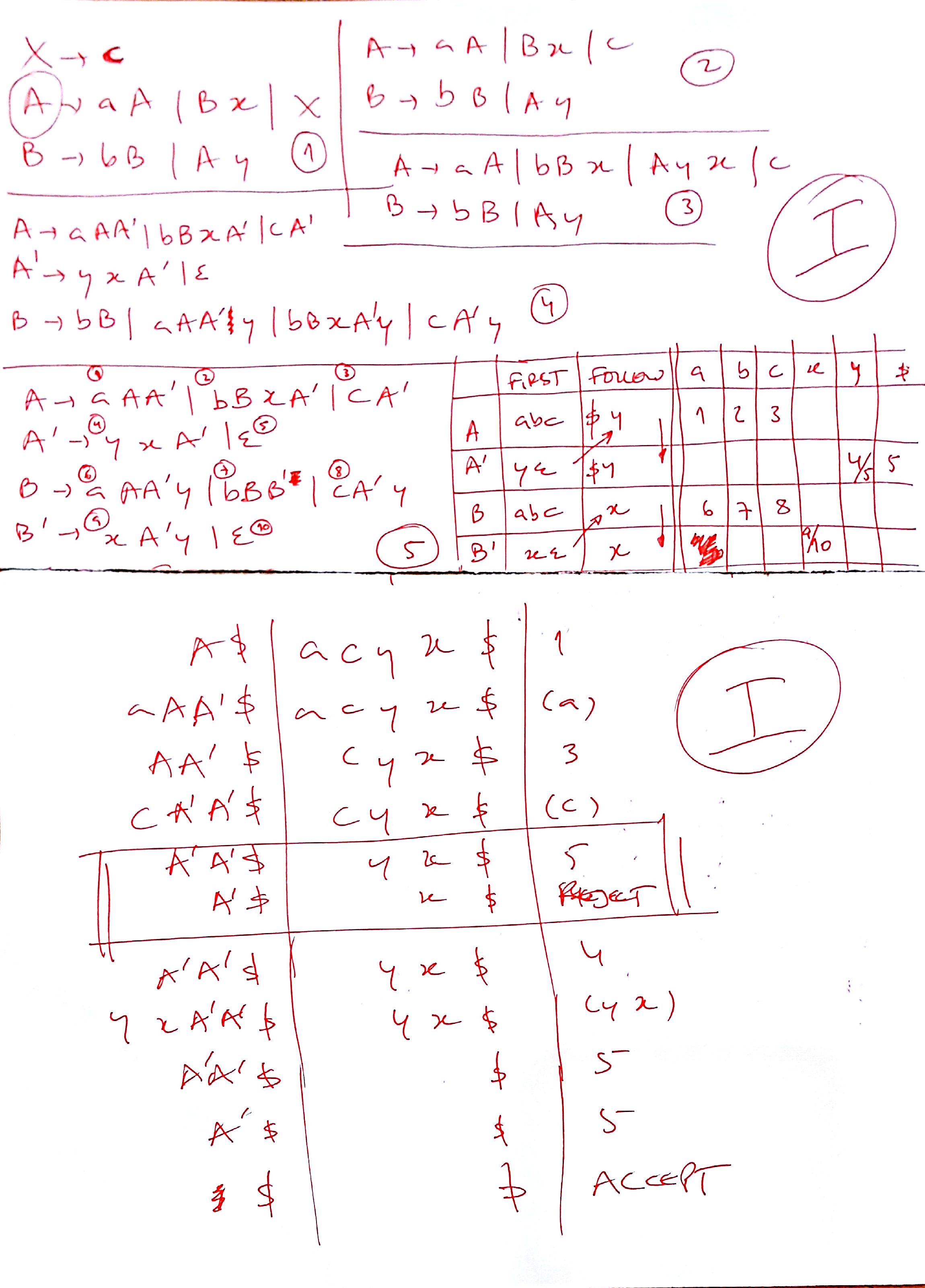Difference between revisions of "Top-Down Parsing/Exercise 12: Test 2016/04/08"
From Wiki**3
< Top-Down Parsing
(→Problem) |
|||
| Line 1: | Line 1: | ||
= Problem = | = Problem = | ||
| − | Consider the following grammar, where '''A''' is the initial symbol and '''{x, y | + | Consider the following grammar, where '''A''' is the initial symbol and '''{a, b, c, x, y}''' is the set of terminal symbols: |
X → c | X → c | ||
| Line 9: | Line 9: | ||
# Examine the grammar and rewrite it so that an LL(1) predictive parser can be built for the corresponding language. | # Examine the grammar and rewrite it so that an LL(1) predictive parser can be built for the corresponding language. | ||
# Compute the FIRST and FOLLOW sets for all non-terminal symbols in the new grammar and build the parse table. | # Compute the FIRST and FOLLOW sets for all non-terminal symbols in the new grammar and build the parse table. | ||
| − | # Show the analysis table (stack, input, and actions) for the parsing process of the ''' | + | # Show the analysis table (stack, input, and actions) for the parsing process of the '''acyx''' input sequence. |
= Solution = | = Solution = | ||
Revision as of 12:30, 11 April 2016
Problem
Consider the following grammar, where A is the initial symbol and {a, b, c, x, y} is the set of terminal symbols:
X → c A → a A | B x | X B → b | B
- Examine the grammar and rewrite it so that an LL(1) predictive parser can be built for the corresponding language.
- Compute the FIRST and FOLLOW sets for all non-terminal symbols in the new grammar and build the parse table.
- Show the analysis table (stack, input, and actions) for the parsing process of the acyx input sequence.
Solution
| Solução completa |
|---|
